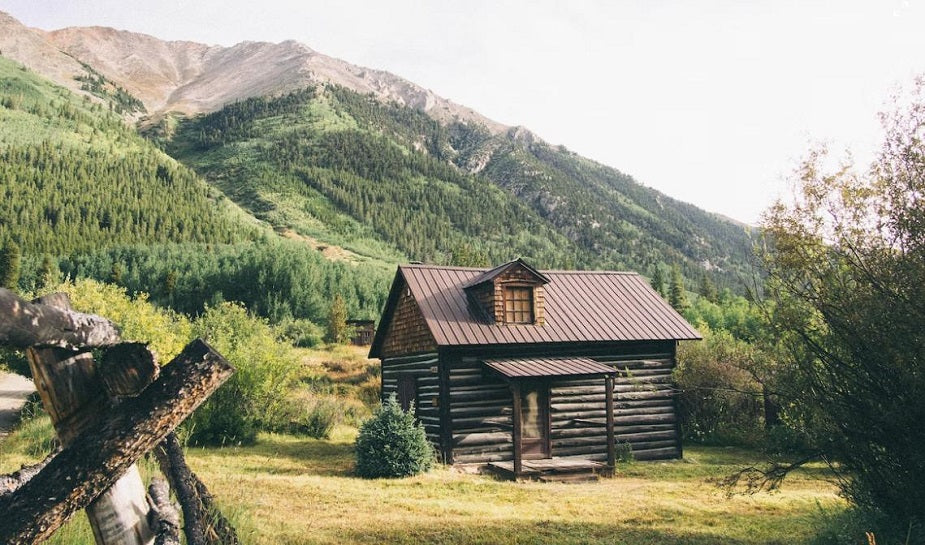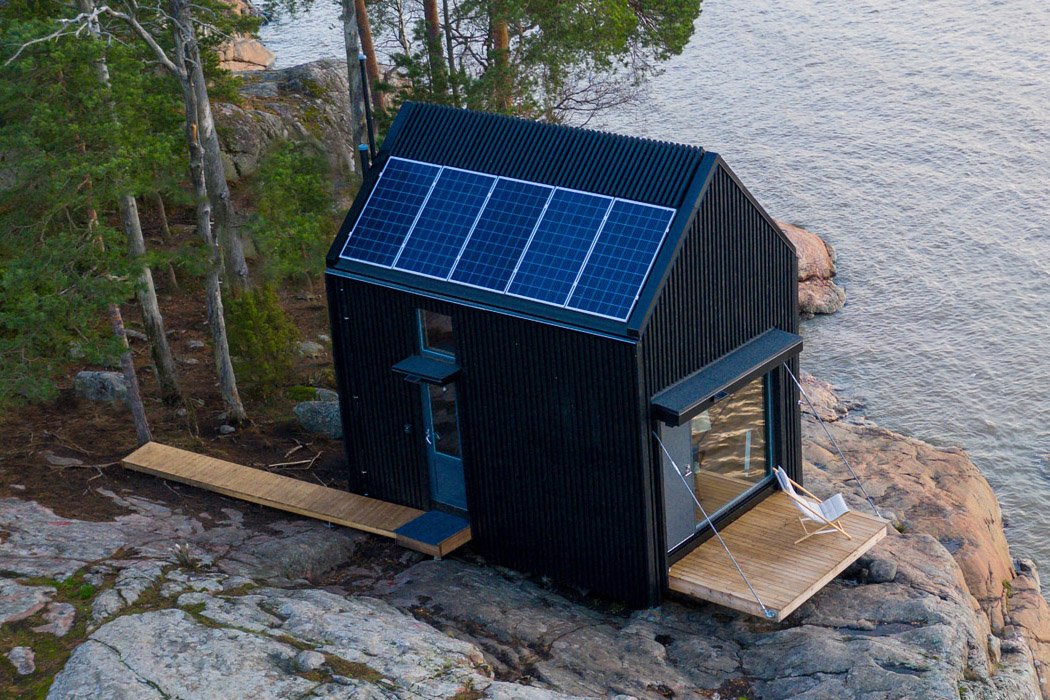
It is estimated that more than 250,000 people in the U.S. live an off-grid lifestyle. This number is only increasing each and every year.
With that being said, many cabin owners are looking for easier ways to take their small home off-grid.
With the growing popularity of solar generators, many believe they may have found the answer.
The question is, does a solar generator have the energy capacity to power an off-grid cabin?
Let's find out.
Using A Solar Generator In A Cabin

Why would someone opt for using a solar generator in a cabin over a common solar system to begin with?
The answer is simple, ease of use and cost.
Solar system installations require advanced electrical knowledge in order to be set up. In other words, your average Joe will not be able to install a solar system themselves (safely at least).
This means you would need to pay someone to come out and install your system for you. This could prove quite difficult depending on how off-grid you actually live.
However, solar generators can be bought and used as is, there is pretty much no learning curve when it comes to operating one.
Can A Solar Generator Power A Cabin?
In order to establish whether a solar generator will be able to power your cabin, you need to figure out what your energy consumption will be.
To do this, follow our step-by-step guide below:
Step 1: Write Down Your Appliances
Quite a simple first step, just make a list of all the appliances you have in your cabin, here's an example below:
| Typical Appliances |
| Coffee Maker |
| Microwave |
| Regular Refrigerator / Freezer |
| Toaster |
| Laptop and Cellphone |
| Lightbulbs |
Step 2: Add Your Appliances Power Ratings
Next, you will need to establish your appliances power ratings. You can do this by simply looking at their nameplate ratings. This is often found at the back of your appliance on a sticker or plate.
| Typical Appliances | Rated (Running) Watts |
| Coffee Maker | 1100 W |
| Microwave | 800 W |
| Regular Refrigerator / Freezer | 700 W |
| Toaster | 800 W |
| Laptop and Cellphone | 100 W |
| Lightbulbs | 150 W |
| Total | 4,850 W |
Step 3: Estimate The Operating Hours Of Each Appliance
Your next step is to figure out how long you aim to use each appliance for every day. This is an important step as it determines your energy consumption.
| Typical Appliances | Rated Power | Running Hours |
| Coffee Maker | 1100 W | 0.1 |
| Microwave | 800 W | 0.15 |
| Regular Refrigerator / Freezer | 700 W | 24 |
| Toaster | 800 W | 0.1 |
| Laptop and Cellphone | 100 W | 5 |
| Lightbulbs | 150 W | 5 |
| Total | 4,850 W |
Step 4: Calculate Your Total Daily Energy Needs

Finally, we need to calculate energy consumption. This is very easy to do once you have your appliance power rating along with its usage time.
The formula is as follow: W x Time = Energy Consumption.
| Typical Appliances | Rated Power | Running Hours | Energy Consumption |
| Coffee Maker | 1100 W | 0.1 | 110 |
| Microwave | 800 W | 0.15 | 120 |
| Regular Refrigerator / Freezer | 700 W | 24 | 16,800 |
| Toaster | 800 W | 0.1 | 80 |
| Laptop and Cellphone | 100 W | 5 | 500 |
| Lightbulbs | 150 W | 5 | 750 |
| Total | 4,850 W | 18,360 Wh |
We have some pretty good news though, heat regulating equipment such as AC's and refrigerators, consume much less power than their nameplate rating states.
This is largely due to the fact that they cycle on and off throughout the day, meaning they run at a much lower wattage.
Below is an updated table indicating the above information:
| Typical Appliances | Rated Power | Running Hours | Energy Consumption |
| Coffee Maker | 1100 W | 0.1 | 110 |
| Microwave | 800 W | 0.15 | 120 |
| Regular Refrigerator / Freezer | 700 W | 24 | 5,600 |
| Toaster | 800 W | 0.1 | 80 |
| Laptop and Cellphone | 100 W | 5 | 500 |
| Lightbulbs | 150 W | 5 | 750 |
| Total | 4,850 W | 7,160 Wh |
Step 5: Calculate your yearly energy requirements
To do this, simply multiply your daily energy consumption by 365 days.
7,160 Wh (7,1 kWh) x 365 = 2,591 kWh per year or 215 kWh per month.
Now the questions remains, will a solar generator be enough to power your cabin?
Well, that depends on which solar generator/solar panels you go for.
We now know that our cabin requires at least 7,100 Wh per day in order to function. This means you will need a solar generator that has at least that amount of capacity.
For example, each AC500 supports up to 6 expansion batteries for a total capacity of 18,432Wh. This is hands down enough energy capacity to power your cabin.
In fact, you could get a way with 3 - 4 expansion batteries to meet your daily energy needs. We recommend at least 4 though.
Final thoughts
The three most important things for you to focus on when deciding on a solar generator for your cabin is, where you cabin is located and the amount of peak sun hours it receives, how much energy you will consume, and what your total wattage will be.
With this information you can determine how many solar panels you will need, what battery size you will need and what inverter size you will need.
All in all, the AC300 and AC500 are perfect solar generators to power an off-grid cabin.







































































